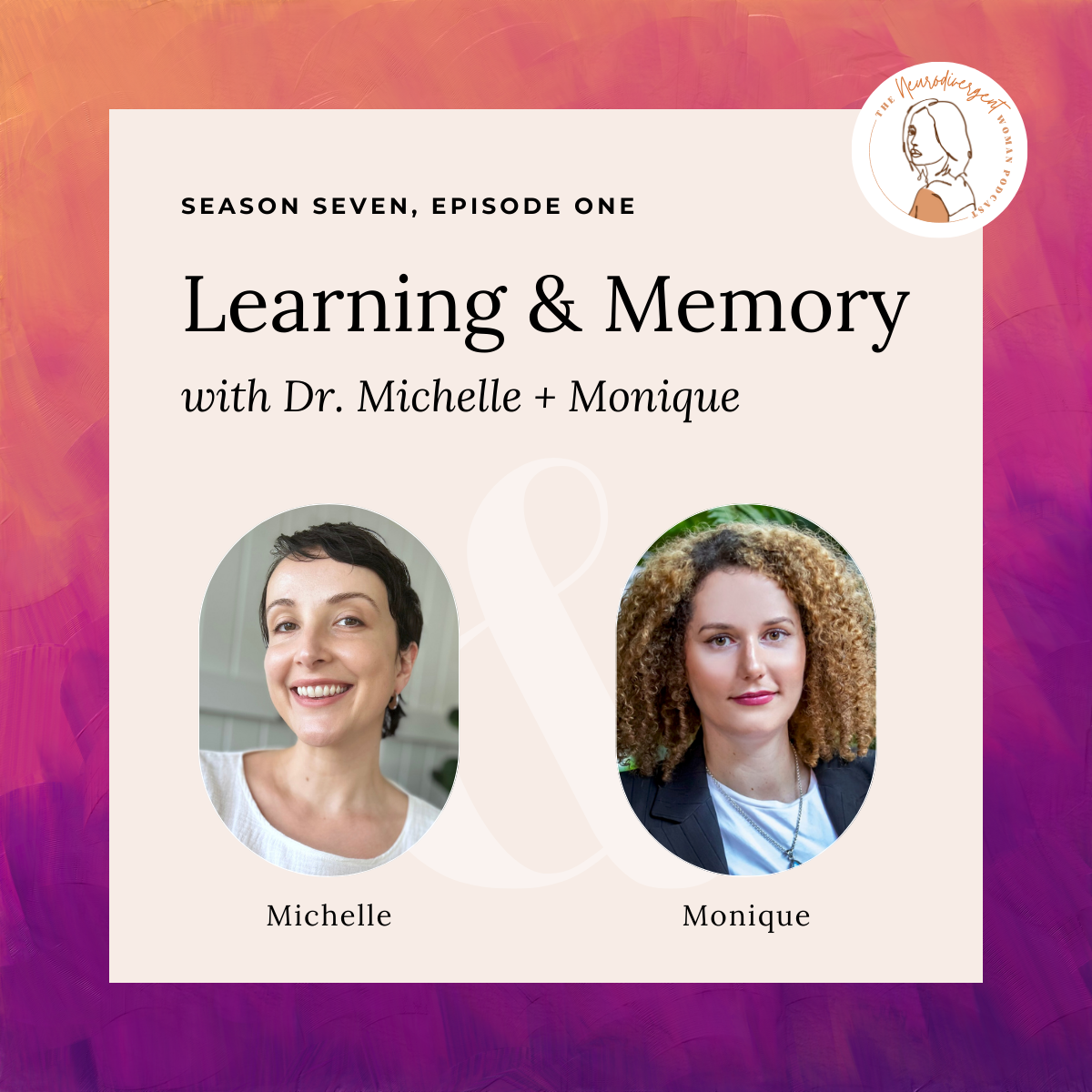
Season 7, Episode 4: FND (Functional Neurological Disorder) with Simone Mangelsdorf-Collett
We’re super excited to bring you this week’s episode with Senior Clinical Neuropsychologist, Simone Mangelsdorf-Collett (she/her). We chat with Simone about Functional Neurological Disorder (FND), or as Simone puts it, “the most common disorder you’ve never heard of”.
In this episode, we cover what Functional Neurological Disorder is and how it differs from other neurological disorders, what the term ‘functional’ means in this context, the historical context and evolution of our understanding of FND, some of the known mechanisms and triggers behind FND, the overlap between FND, neurodivergence, and gender, treatment options, and Simone’s work in FND advocacy and education.

Season 7, Episode 3: Neurodivergence in Chinese Culture with Sharen Lui
In this episode, Monique explores the intersection of neurodivergence and Chinese culture with Sharen Lui. Sharen is a neurodivergent Educational and Developmental Psychologist, and the Director of Sprout Psychology Melbourne. Together, they discuss what neurodivergence means to Sharen and the driving force behind establishing Sprout Psychology, Sharen’s path to discovering her own neurodivergence, and the role of her cultural identity in this process.
They explore the impact of words and language on the perception of neurodivergence in Chinese culture, the importance of meeting CALD families ‘where they are at’, and how Chinese cultural norms interact with neurodivergence, including filial piety, gendered expectations, and behavioural norms. Sharen also shares insights on masking, barriers to accessing culturally competent care, and working with CALD groups.

Season 7, Episode 2: Unschooling with Sari González and Becka Koritz
This week, we chat with Sari González and Becka Koritz, co-founders of Radical Learning, about unschooling and alternative education. As mums to neurodivergent unschoolers and youth rights advocates, they challenge conventional education and parenting, helping families unlearn control-based methods and embrace trust, consent, and youth agency. We explore the differences between homeschooling and unschooling, the internal work of de-schooling—including confronting our inner Mrs. Trunchbull—and how unschooling honours neurodivergent learning styles. We also unpack the myth of resilience, questioning whether forcing kids through hardship actually helps them.

Season 7, Episode 1: Learning and Memory
We’re kicking off Season 7 with a deep dive into learning and memory—perfect for those who love an info dump! This episode explores the four key stages of memory, what affects perception and encoding, and the different types of memory, from working to long-term. We look at how neurodivergent brains process and recall information, the impact of hormonal changes on memory for women and AFAB people, and what influences memory retention over time. To wrap up, we share practical strategies for improving memory, from movement and environmental adjustments to structured learning techniques.